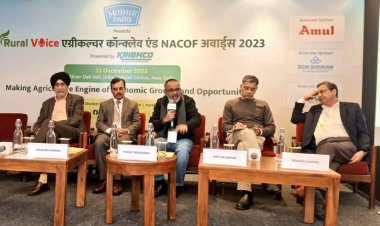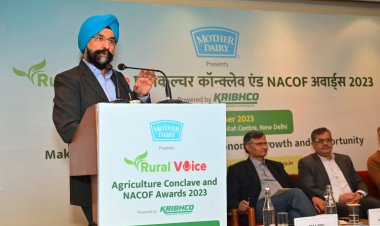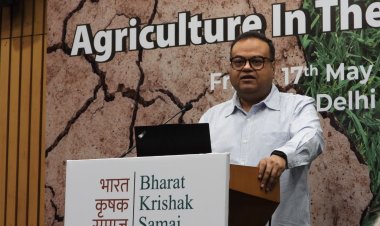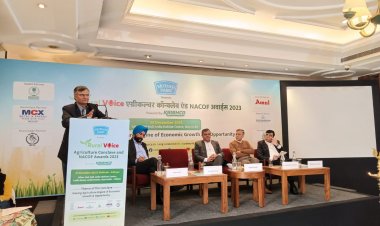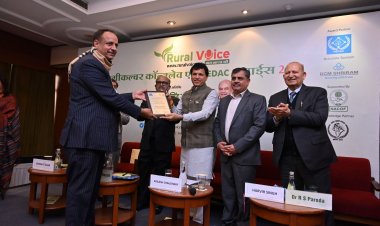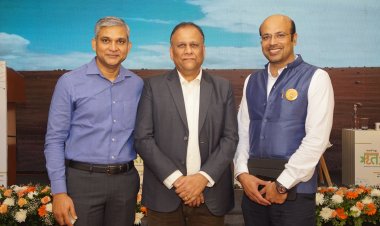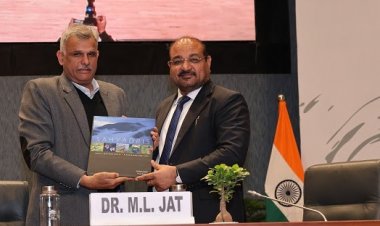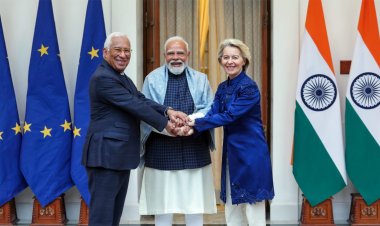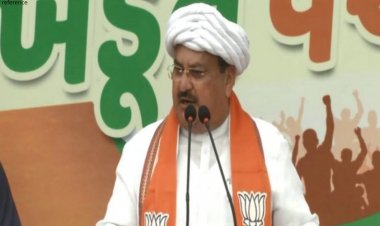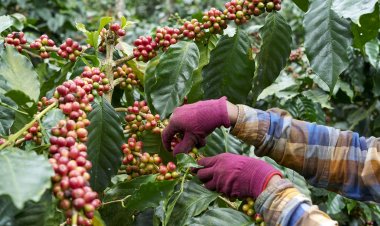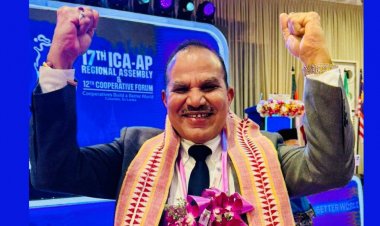The stricter the government gets, the stronger will the farmers’ movement be: Jayant Chaudhary
The ongoing movement on the Delhi borders against the three farm laws brought about by the central government has entered its third month. The movement took a major turn just when the movement at the Ghazipur border was about to die on January 28. The emotional appeal of Rakesh Tikait, the national spokesman of the Bharatiya Kisan Union (BKU), in the wake of the strictness shown by the government gave a new lease of life to the movement. It is the impact of this revival that the farmers’ movement has strengthened its roots in western Uttar Pradesh.
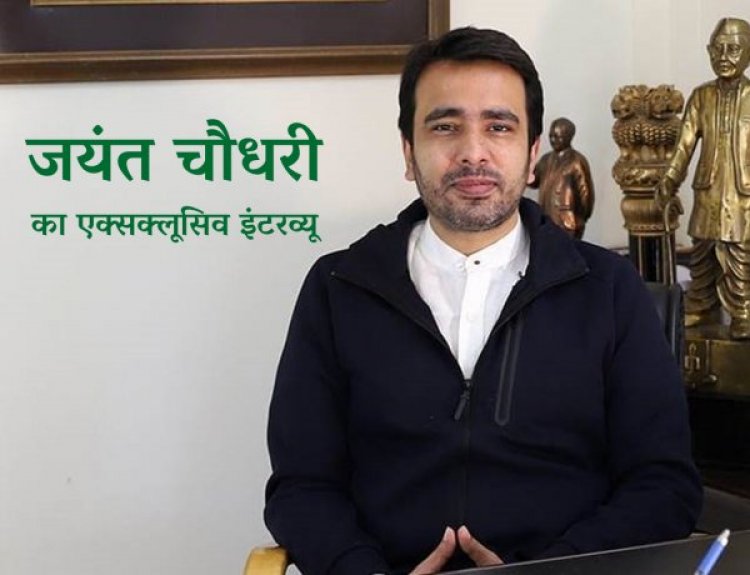
Rashtriya Lok Dal (RLD) has begun to actively participate in the farmers’ movement. It is holding farmer panchayats in western Uttar Pradesh. In this series the panchayat with maximum farmer participation was held at Bhainswal village in Shamli district on February 5. Jayant Chaudhary, the vice-president of RLD, addressed this panchayat, wherein about 20,000 farmers participated. Soon after the panchayat Jayant Chaudhari had the following conversation with Harvir Singh, the Editor-in-Chief of RuralVoice:
Which direction do you think is the movement going in? Will the government take back the three farm laws?
The government does not seem to be in a mindset of taking back the farm laws.
Various cases are being registered against some others, too, along with the protesting farmers. What will be the impact of these? Is this the government’s calculated strategy or is the government a victim of over-confidence?
I believe the steps taken by the government will have an adverse impact on the image of the country. People across the world who are impressed by the India story are not getting a positive message from this. Neither are steps like this sending the right message to the investors. The image of India has been one of a soft power. Of a cultural power. People across the world love us because of this and like our people. But the steps of the government are sending a negative message.
The government is holding the farmers responsible for this. But this is not correct, because it is you who are bringing disgrace. This is causing damage to India’s soft-power image. In fact, BJP and its leaders have become an election-winning machine. They don’t listen to anyone and the government cares for none. This is also having an adverse impact on the investors. In order to suppress the movement, the government is behaving strictly with the people like they do in Russia and China. Which is not in the interests of democratic values.
There have been instances of decisions of the government being rolled back in a democratic system. What has your experience been as a parliamentarian?
See, the government has done this even earlier. I’d like to give you a strong example of this. The UPA government had come up with a similar law on FRP on sugarcane in 2009. Sharad Pawar ji was the Minister for Agriculture. We had protested this (the law). We demonstrated at the Jantar Mantar, in which about 25 (thousand) to 30 thousand farmers participated. We had called the BJP also in this demonstration and Advani ji had come on the forum. It was an issue similar to the recent farm bills. The government had issued an ordinance and tabled the bill in Parliament. The right of the states to fix the sugarcane prices had been taken away in that too. (But) the government amended the bill and later repealed it. A mere three-hour rally had made the government realize and the bill had been repealed because the government understood that the people were against it. Tell me then whether that government was strong or this government is strong.
Do you believe the UPA government was strong?
Because it understood its accountability and it understood the issue and immediately took step on this. In a democracy, only that government is strong which listens to people. This is an ignorant government that cares for none. This government lives in a cocoon of its own. But such an attitude is not correct in a democracy. You see why people listen to those like Ajay Hudda. (One of the songs of Ajay Hudda, who sat beside Jayant Chaudhary during the interview, is getting very popular among the farmers.) Because he says what people have in their hearts. He has struck an emotional chord with the people. The government should see what the people want. The government should also understand what the undercurrent is.
How will this conflict come to an end? The farmers’ movement has been going on for more than 70 days.
The government wants to tire people out. It is behaving strictly and thinks people will go back. The government is not understanding the sentiments of these people. The government does not understand the nature of the people sitting at the venues of protest and that of the areas they come from. The stricter you get with them, the more the cases against them, the angrier they will get. They will not come back but reach in greater numbers.
The movement took a new turn on January 26. The violent incidents that occurred that day brought disgrace to the farmers’ movement. It appeared, due to this, on January 28 that the protests would come to an end. But what happened during the six hours between 4 o’clock and 10 o’clock on January 28 changed everything. Rashtriya Lok Dal president Ajit Singh called Rakesh Tikait on phone and you tweeted that. Doesn’t this make it clear that direct political support to the movement has started?
The farmers’ issue is genuine and it’s an issue linked to the grassroots. If people lose hope the movement can’t go on. It will stand only on hope. We are accountable as a political party. As a political party, we want to convey that there is also another way. They are not listening today. They should look at the social and political support. A political step is a way to sustain people’s hopes and address their grievances. I had gone to the protest venue even earlier and partook of the charity kitchen. We could not participate (in the movement) earlier because that was what the spirit of the movement was. But the situation has changed now. This is a political initiative to find out a solution.
This means political parties are now directly supporting this movement?
Yes, I had gone to the Muzaffarnagar panchayat. We started calling farmer panchayats after that. We held a panchayat at Baraut, one at Mathura. We organized this farmer panchayat at Bhainswal today. We are saying if you wish to come, if the khap chiefs want to come, here is a forum for you. We are organizing these and this is our political campaign. We are holding about a dozen farmer panchayats in western Uttar Pradesh and Rajasthan till February 18 continuously. This may not be practical for other parties. One of the reasons is that the supporters of the Congress and the Akali Dal both have come to the farmers’ movement in Haryana. The situation is somewhat different there. Which is not the case in UP. The protesters should understand that they are committing a mistake by not calling the political parties. They should not feel that the politicians will hijack their movement. The solution to a problem in a democracy comes only through a political process.
But is the RLD strengthening its political ground with the help of the anti-government wave?
We have made a complete schedule of our meetings. BJP should understand that this would cause them loss. Obviously, we stand to gain. We are helping in strengthening the movement.
Rakesh Tikait says that political parties should not use this movement to garner votes.
He is right in his own place. What he says is correct from his perspective. So, we are holding farm panchayats on our forum.
There are elections in UP next year. Will you ally with SP and take advantage of the Jat-Muslim vote bank? They say it is a Jat movement.
This is a case of leadership. Every movement has its leadership and here they are leading. But one can’t say that this is a movement only of the Jats. This is a farmers’ movement. Sugarcane is the main crop in this belt, so I raised the issue of cane price and arrears today. The government hasn’t fixed the price yet. The pending dues have gone up to 14,000 crore rupees. This is an issue for all the farmers. The movement is not being run by a particular caste, but by all farmers.



 Join the RuralVoice whatsapp group
Join the RuralVoice whatsapp group

















